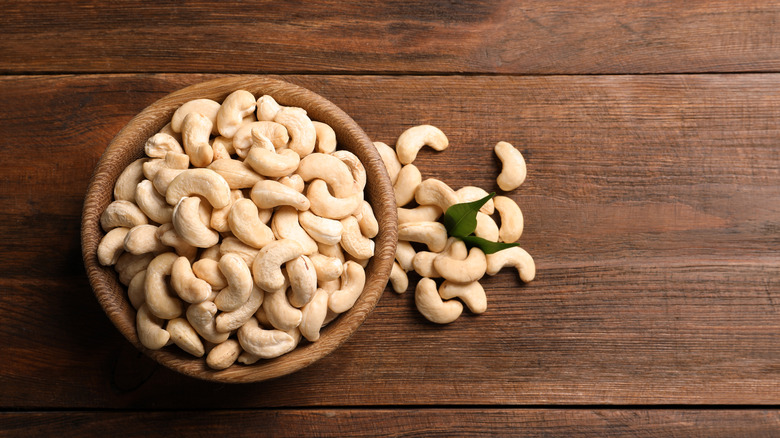Can Magnesium Lower Blood Pressure?
Magnesium is an essential mineral that plays an important role in hundreds of biochemical reactions inside the body. In fact, your body needs magnesium to perform some of its most basic and necessary functions (via Healthline). For instance, magnesium can help convert food into energy, create and repair DNA, and form new proteins from amino acids. It may even help regulate your nervous system and control your muscle contractions.
But can magnesium really help regulate your blood pressure? As it turns out, the answer isn't so cut and dry. According to a meta-analysis published in the Journal of Hypertension, an increased magnesium intake may help lower blood pressure over time (via Live Science). However, this may only apply to people who already have high blood pressure, or hypertension.
In their analysis, researchers from Indiana University examined 34 studies with a total of 2,000 patients and found that those taking 368 milligrams of magnesium supplements every day for three months saw their systolic blood pressure decrease by an average of 2 millimeters of mercury and their diastolic blood pressure by 1.8 millimeters of mercury.
"With its relative safety and low cost, magnesium supplements could be considered as an option for lowering blood pressure in high-risk persons or hypertension patients," Dr. Yiqing Song, an associate professor of epidemiology at Indiana University and the lead author of the meta-analysis, said in a statement.
How to add more magnesium to your diet
While data from the aforementioned analysis suggested that magnesium's anti-hypertensive effect might only work on people who already have a magnesium deficiency, most of the studies had relatively small sample sizes, and most of the higher-quality studies expressed a higher reduction in blood pressure overall (per Live Science).
However, this doesn't mean that you necessarily need to start taking supplements in order to increase your daily magnesium intake (via Medical News Today). According to the American Heart Association (AHA), getting magnesium through your everyday diet may be enough to help you lower or maintain your blood pressure.
You can add more magnesium to your diet by eating a variety of magnesium-rich foods (via Verywell Health). For instance, spinach, potatoes, beans, nuts, fish, and low-fat dairy products are all great sources of magnesium. More specifically, a three-ounce serving of cooked white fish contains 90 milligrams of magnesium, while one ounce of cashews contains 75 milligrams of magnesium. For healthy adults, the daily recommended intake of magnesium is 320 to 420 milligrams per day.


